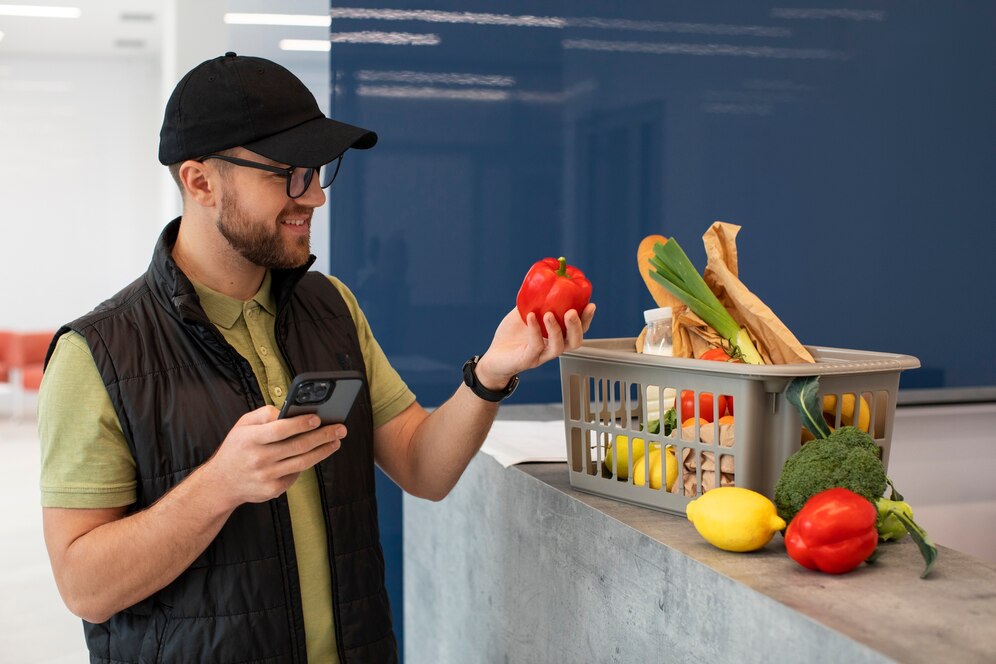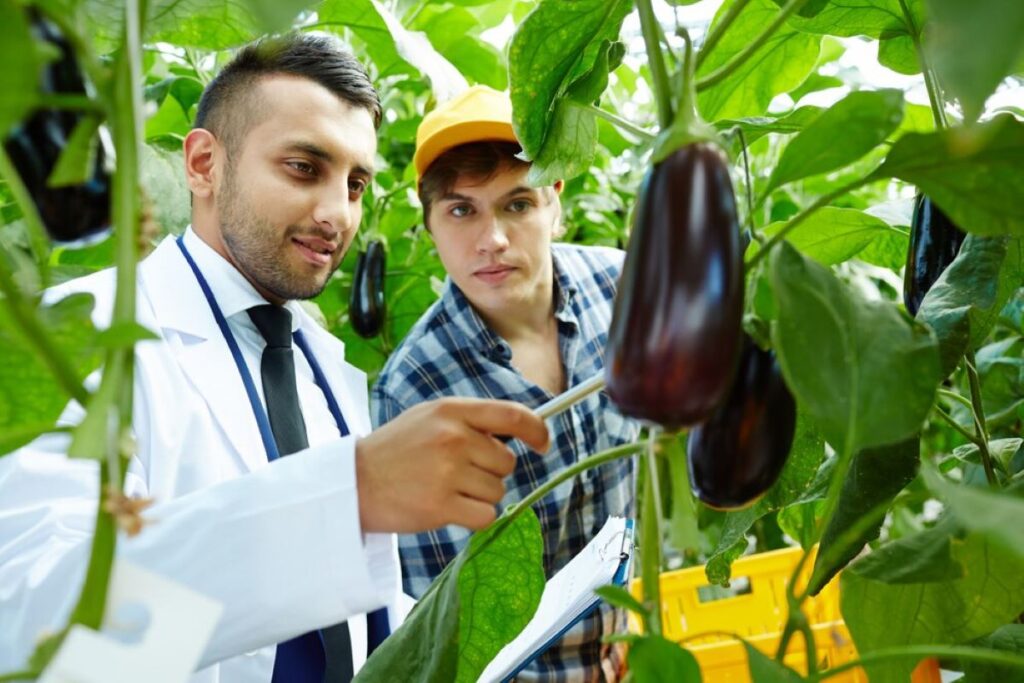Best Food Safety Software Companies: What Sets Them Apart

In today’s fast-paced food industry, ensuring safety and compliance is paramount. With the increasing complexity of regulations and the need for transparency, food safety software has become a vital tool for companies striving to maintain high standards. This article explores some of the best food safety software companies, highlighting what distinguishes them from their competitors and how they contribute to the overall safety of food products.
Understanding Food Safety Software
Food safety software encompasses a range of applications designed to assist businesses in managing food safety protocols, compliance, and quality assurance. These tools help streamline processes, reduce human error, and ensure that food products meet health and safety regulations.
With the rise of digital solutions, food safety software companies has evolved significantly. Companies can now leverage technology to monitor temperature controls, track inventory, and manage audits more efficiently. The integration of mobile applications and cloud-based systems has further enhanced accessibility and real-time data sharing. This shift not only improves operational efficiency but also empowers businesses to respond swiftly to potential safety issues, thereby safeguarding public health and maintaining consumer trust.
As food safety concerns continue to grow globally, the importance of robust software solutions cannot be overstated. For instance, the recent pandemic highlighted vulnerabilities in the food supply chain, prompting many companies to adopt advanced software systems that provide greater visibility and control over their operations. By utilising predictive analytics, businesses can anticipate potential risks and take proactive measures to mitigate them, ensuring that food safety remains a top priority.
Key Features of Food Safety Software
When evaluating food safety software, several key features should be considered:
- Compliance Management: Ensures that businesses adhere to local and international food safety regulations.
- Real-time Monitoring: Tracks critical control points to prevent foodborne illnesses.
- Documentation and Reporting: Facilitates easy access to records and generates reports for audits.
- Training Modules: Provides resources for staff training on food safety practices.
Moreover, the user-friendly interface of many modern food safety software solutions allows staff at all levels to engage with the system effectively, reducing the need for extensive training. This ease of use is particularly beneficial in fast-paced environments such as restaurants and food production facilities, where time is of the essence. Additionally, many software platforms offer customisation options, enabling businesses to tailor features to their specific operational needs and regulatory requirements, thus enhancing the overall effectiveness of their food safety management systems.
Top Food Safety Software Companies
Several companies have emerged as leaders in the food safety software sector, each offering unique solutions tailored to various aspects of food safety management. Here, we delve into some of the top contenders.
1. Safefood 360°
Safefood 360° is a comprehensive food safety management software designed for food businesses of all sizes. Its user-friendly interface and robust features make it a popular choice among food manufacturers, distributors, and retailers.
What sets Safefood 360° apart is its focus on risk management and compliance. The platform allows users to conduct thorough risk assessments and develop tailored food safety plans. Additionally, its cloud-based nature ensures that all stakeholders can access critical information from anywhere, enhancing collaboration across teams.
2. FoodLogiQ
FoodLogiQ is another prominent player in the food safety software market, specialising in supply chain transparency. The platform offers solutions for traceability, compliance, and quality management, making it an invaluable tool for businesses aiming to enhance their food safety protocols.
One of the standout features of FoodLogiQ is its ability to provide end-to-end visibility across the supply chain. This transparency allows companies to quickly identify and address potential risks, ensuring that food products are safe from farm to fork. Furthermore, FoodLogiQ’s integration capabilities with existing systems streamline operations and reduce the complexity of managing food safety.
3. HACCP Manager
HACCP Manager is specifically designed to help businesses implement Hazard Analysis Critical Control Point (HACCP) plans effectively. This software is particularly beneficial for companies in the food processing and manufacturing sectors.
What makes HACCP Manager unique is its emphasis on simplicity and ease of use. The software guides users through the process of creating and managing HACCP plans, ensuring that all critical control points are monitored and documented. Additionally, its mobile application allows for on-the-go data entry, making it easier for staff to maintain compliance in real-time.

Factors That Differentiate Food Safety Software Companies
While many companies offer food safety software, certain factors can set them apart in a competitive landscape. Understanding these differentiators is crucial for businesses looking to invest in the right tools.
Innovation and Technology
In a rapidly evolving industry, innovation is key. Companies that continually update their software to incorporate the latest technological advancements, such as artificial intelligence and machine learning, can provide users with enhanced functionalities. These innovations often lead to more accurate data analysis, predictive insights, and improved decision-making capabilities.
User Experience and Support
A user-friendly interface is essential for ensuring that staff can effectively utilise the software. Companies that prioritise user experience often see higher adoption rates and better overall compliance. Additionally, robust customer support services are crucial. Businesses should look for vendors that offer comprehensive training resources and responsive support teams to assist with any issues that may arise.
Customisation and Scalability
Every food business has unique needs, and the ability to customise software solutions is a significant advantage. Companies that offer tailored features or modules allow businesses to adapt the software to their specific requirements. Furthermore, scalability is essential for growing companies. Software that can evolve alongside a business ensures long-term viability and investment value. You may like to visit https://olyabrand.com/the-role-of-food-safety-compliance-and-risk-management-in-protecting-consumers/ to get more about the role of food safety compliance and risk management in protecting consumers.
Case Studies: Success Stories
Examining real-world applications of food safety software can provide valuable insights into its effectiveness. Here are a few case studies highlighting successful implementations.
Case Study 1: A Major Food Manufacturer
A leading food manufacturer implemented Safefood 360° to streamline its compliance processes. Prior to the software’s adoption, the company struggled with manual documentation and inconsistent record-keeping, leading to compliance issues and increased risks of food safety breaches.
After integrating Safefood 360°, the manufacturer saw a significant reduction in compliance-related incidents. The software’s real-time monitoring capabilities allowed for immediate corrective actions, and the documentation features simplified audit preparations. As a result, the company not only improved its food safety standards but also enhanced its reputation in the industry.
Case Study 2: A Retail Chain
A major retail chain turned to FoodLogiQ to enhance its supply chain transparency. With thousands of suppliers, the company faced challenges in tracking the safety and quality of its products.
By implementing FoodLogiQ, the retail chain gained comprehensive visibility into its supply chain. The software enabled the company to quickly identify and address potential risks, ensuring that only safe products reached consumers. This proactive approach not only improved food safety but also strengthened consumer trust in the brand.
The Future of Food Safety Software
The food industry is continually evolving, and so too is the software that supports it. As technology advances, food safety software will likely incorporate even more sophisticated features, such as predictive analytics and enhanced data visualisation tools.
Moreover, the increasing emphasis on sustainability and ethical sourcing will drive the development of software solutions that help businesses track and report on these aspects. Companies that stay ahead of these trends will be better positioned to meet consumer demands and regulatory requirements.
Embracing Change
For food businesses, embracing change and adopting modern software solutions is not just a matter of compliance; it is essential for maintaining a competitive edge. As the industry continues to face challenges, those that invest in robust food safety software will be better equipped to navigate the complexities of food safety management.

Conclusion
In conclusion, the landscape of food safety software is diverse, with numerous companies offering innovative solutions to help businesses maintain high safety standards. By understanding what sets these companies apart—be it through technology, user experience, or customisation—food businesses can make informed decisions that enhance their food safety practices.
As the food industry continues to evolve, investing in the right food safety software will be crucial for ensuring compliance, protecting consumer health, and fostering trust in the brand. The future of food safety management is bright, and those who embrace these advancements will undoubtedly reap the benefits.

